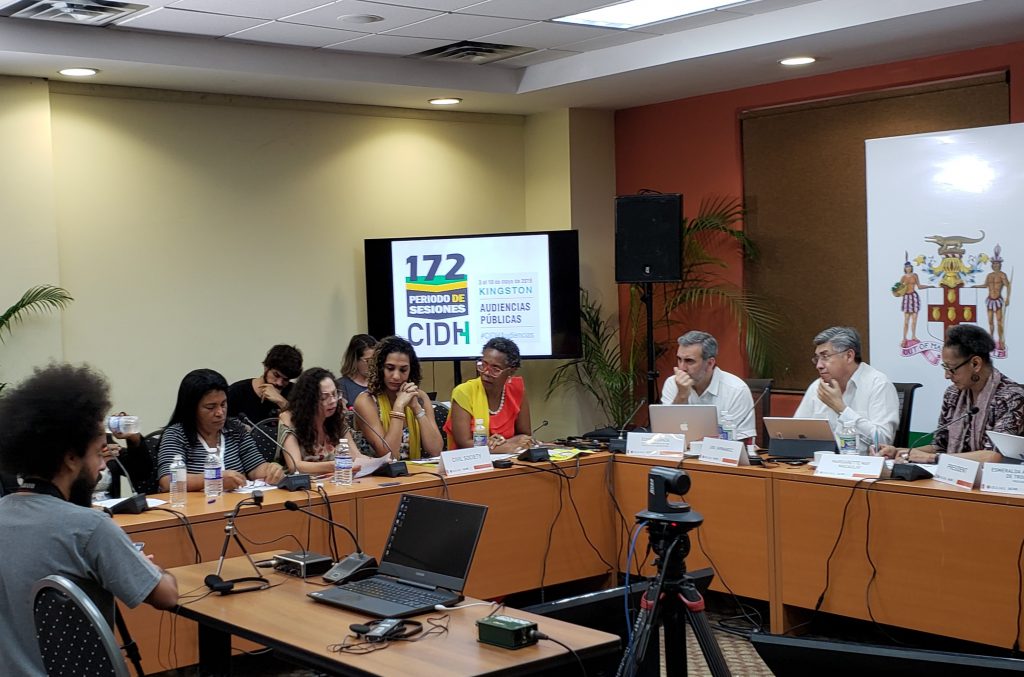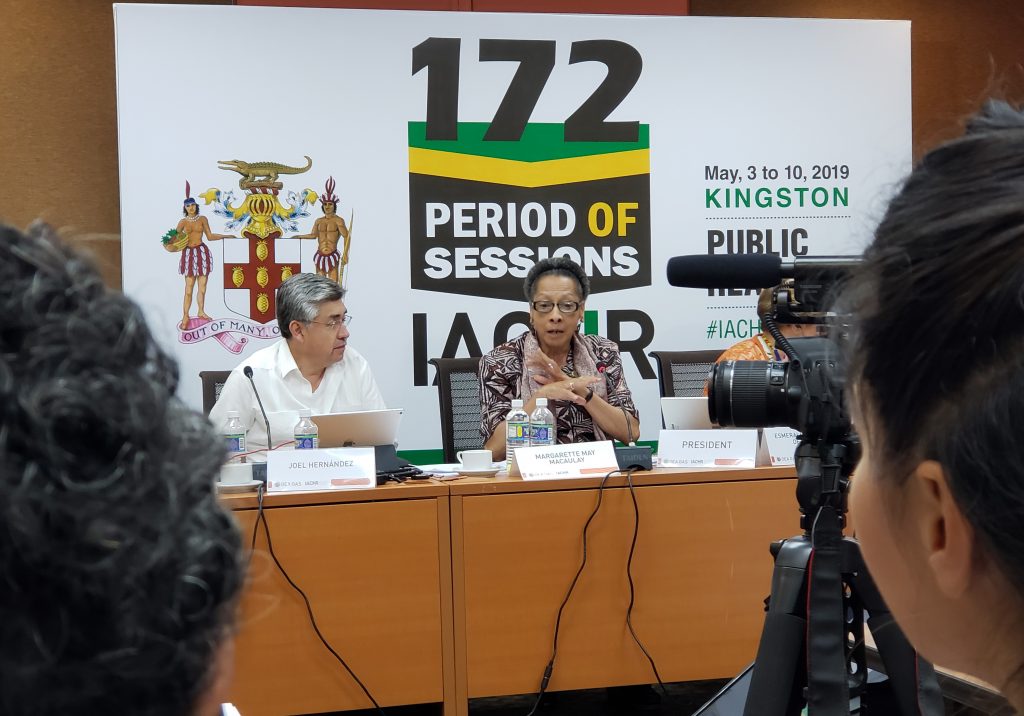
Sometimes, truth has a color. Have you ever gone looking for something – a gift for a loved one, a thrift shop item, a toy for a beloved child? You don’t know exactly what you are looking for, but you’ll know when you see it and you’ll know when you don’t. You can almost see it in your mind’s eye. Maybe not the shape. Maybe not the texture – but the color. Truth can be like that. In the recent IACHR session on The Criminal System and Alleged Violations of the Rights of African Descendants in Brazil, attendees observed this firsthand. Afro- Brazilian claimants described, in painstaking detail, the socio-economic and political plight faced by their communities. On the other hand, the State representatives stoically and mechanically described the recently introduced Anti-Crime Bill, a universal salve that would heal the deep social rifts with marginalized Afro- Brazilians. The disconnect was clear to all of us in attendance. The truth had a color, and this wasn’t it.
Race is inextricably tied to politics, class and the criminal justice system, and Brazil is not the only country dealing with deep racial divisiveness. But the confluence of attacks on indigenous peoples, environmental degradation in the Amazon being at its worst in a decade and the institutional violence and persistent discrimination against Afro- Brazilians is not at all a coincidence. It is an important inflection point in Brazilian society. A right-wing government has erupted a volcano of social, economic and environmental change, which prioritizes business and profit over people and justice. In holding this space for discourse between claimants and the State, the Commission members asked several revealing questions. Questions which were genuine, unrehearsed, but most importantly, seemed to come from a place of disbelief and deep frustration at the current plight of Afro- Brazilians. Three questions in particular (paraphrased below) reveal just how uncomfortable it still is for the Brazilian State to talk about race and how difficult it can be to find and hold the truth.

“Are we talking about the same country?!”
These were the words of Commissioner Margarette May Macaulay, Rapporteur on the Rights of Persons of Afro-Descent & Against Racial Discrimination, as she raised her hands in incredulity to stop the session at one point. The dire circumstances described by the Afro-Brazilian contingent of advocates from seven Brazilian states including Black Women, Mothers of Victims, Quilombolas, African Matrix, Black Media, Favelas and Peripheries simply did not line up with the copacetic reality being described by the State representatives. Commissioner Macaulay said what many of us felt. If the parties could not at least agree on a common denominator of truth – that all is not well for Afro-Brazilians – then how could we ever hope to make progress in a dialog, much less craft a solution?
“Tell me again how will an Anti-Crime Bill fix these deep racial and political problems?”
Was the query of another Commissioner. The State’s sole response to each of the claims regarding the criminalization of Afro-Brazilians was that the recently introduced Anti-Crime Bill would successfully tackle rampant crime in a country with one of the highest murder rates in the world. Notably, the Brazilian State representative tasked with delivering the stoic responses to the claims, rarely uttered the words “Afro-Brazilian” but used the term “Anti-Crime Bill” in abundance. The claimants made ardent rebuttals that the Bill was an inappropriate, disproportionate and ill-suited tool to, ostensibly, fix the problem of the crime. In response, the State representative gave a blank stare then quickly pivoted to another section of the written statement. Brazilian advocates looked on with glazed eyes, but determined set jaws. Clearly, they had heard all of this before. It was clear that there was no question for which the Anti-Crime Bill was not going to be the answer. One didn’t have to be a scholar of philosophy, politics or race relations to realize that we were nowhere near seeing the color of the truth.
“Clearly something has to be wrong here, right?”
One Commissioner asked this question with a sigh of frustration. Brazil is plagued by its inherent racism, violence and a culture of impunity. One needed to look no further than the death of Marielle Franco, an Afro-Brazilian, LGBTQ activists who spoke out on issues of race, representation and violence against the poor. Marielle’s death sparked national and international outrage and glared a spotlight on the struggle of Afro-Brazilians in a country that stigmatizes, marginalizes and incarcerates them at alarming rates. As the Afro-Brazilian contingent described State violence and criminalization of large swathes of their communities, the State representatives were increasingly uncomfortable. But it was only after this particular line of inquiry that they registered how aggravated they were with the discourse. Having said nothing before, one male State representative chimed in angrily to say – basically – “We are here aren’t we?!” and “We told you – We have a Crime Bill”. They were making it unequivocally clear. Their presence was enough, and the Anti-Crime bill was enough. Don’t expect more.
The Afro-Brazilian contingent remained unperturbed. This aggressive resistance, this contempt for their presence and being reprimanded like children for not being satisfied with “enough” – wasn’t new. All of that would continue long after the IACHR hearings, but so would black Brazilians fight against over criminalization, discrimination and invisibility. The session ended with a fair number of raised eyebrows, deep sighs and frustrated glances. For those of us looking for some semblance or color of truth, we left feeling confused, dejected and even angry. Truth had still not made an appearance.
****This is the second in a 2-part blog series on the IACHR 172nd Period of Sessions in Kingston, Jamaica. The first in the series focused on the Protection and Guarantee of the Rights of Indigenous Peoples in Brazil and the Criminalization of Human Rights Defenders of Indigenous Peoples and the Extractive Industry in the United States sessions in a blog titled: “Whose Narrative Is It Anyway? : The Need to De-Magicalize Narrative.”